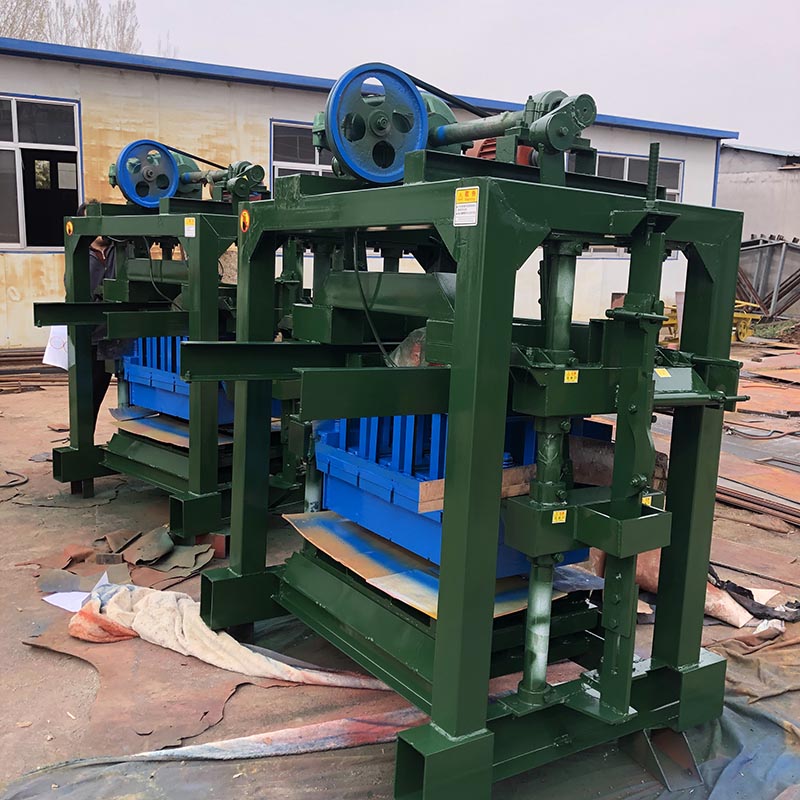
Image source:Aiwei block machine
Introduction
The construction industry in Zimbabwe is witnessing a dynamic shift, driven by urbanization, infrastructure development, and a growing emphasis on sustainable building practices. At the heart of this transformation lies the block making machine manufacturing sector, a pivotal player that supplies the essential machinery for constructing the nation’s buildings and infrastructure. In this article, we delve into the intricate interplay of challenges and opportunities faced by block making machine manufacturers in Zimbabwe. From technological advancements to market dynamics, these factors shape the trajectory of the industry’s growth, innovation, and sustainability.
1. Market Dynamics: Navigating the Landscape
Diverse Construction Needs: Zimbabwe’s construction sector is marked by a diverse range of projects, from residential developments to commercial spaces to infrastructure projects. This diversity drives demand for various types of blocks, creating opportunities for manufacturers to tailor their offerings.
Demand Fluctuations: The construction industry’s cyclical nature can lead to demand fluctuations for block making machines. Manufacturers must anticipate market trends and diversify their product portfolios to maintain stability.
2. Technological Advancements: Balancing Innovation and Investment
Adoption of Technology: Embracing technological advancements is essential for manufacturers to stay competitive and deliver high-quality products.
Investment Challenges: Smaller manufacturers may face financial constraints when it comes to investing in advanced technology. The initial investment required for modern machines can be significant.
Opportunity: Collaborative efforts between manufacturers and financial institutions can provide access to funding or incentives that enable smaller players to invest in technology upgrades and remain competitive.
3. Access to Skilled Workforce: Bridging the Skills Gap
Operating Complex Machinery: Modern block making machines often require skilled technicians and operators who understand the intricacies of the technology.
Skills Development: Manufacturers must collaborate with educational institutions to offer training programs that equip individuals with the necessary expertise.
Opportunity: Manufacturers that invest in training programs contribute to a skilled workforce, ensuring the efficient operation of their machines and fostering a sustainable talent pool for the industry.
4. Sustainability as a Competitive Edge
Green Construction: Sustainability is a growing concern in Zimbabwe’s construction sector. Manufacturers that prioritize sustainability and offer eco-friendly solutions gain a competitive edge.
Energy-Efficient Technology: Manufacturers that design energy-efficient machines, such as those powered by renewable energy sources, align with the industry’s commitment to reducing carbon footprints.
Opportunity: By integrating sustainability into their business practices, manufacturers not only contribute to a greener future but also attract environmentally conscious customers, enhancing their market position.
5. Export Potential: Tapping into Regional Markets
Regional Expansion: The African continent presents opportunities for block making machine manufacturers in Zimbabwe to export their products to neighboring countries with growing construction industries.
Market Assessment: Manufacturers must assess the regulatory, logistical, and demand aspects of target markets to ensure successful expansion.
Opportunity: By exploring regional markets, manufacturers can broaden their customer base, increase revenue streams, and contribute to the development of neighboring economies.
6. Collaboration and Partnerships: Navigating Challenges Together
Industry Collaborations: Manufacturers can benefit from collaborations with other stakeholders in the construction industry, such as builders, architects, and engineers.
Research and Development: Collaborative efforts can lead to joint research and development initiatives, helping manufacturers stay at the forefront of innovation.
Opportunity: Collaborations also provide a platform for sharing knowledge, insights, and best practices, ultimately contributing to the growth and sustainability of the entire industry.
Conclusion
The challenges and opportunities for block making machine manufacturers in Zimbabwe present a complex yet promising landscape. As the country’s construction sector continues to evolve, manufacturers have the chance to shape the industry’s trajectory through innovation, collaboration, and a commitment to sustainability. By leveraging technological advancements, addressing skills gaps, tapping into regional markets, and embracing eco-friendly practices, manufacturers can navigate challenges and capitalize on opportunities. As Zimbabwe’s built environment transforms, the role of these manufacturers becomes ever more crucial, not only as suppliers of machinery but as architects of a more resilient, efficient, and sustainable construction ecosystem. Through determination, adaptability, and strategic decision-making, block making machine manufacturers in Zimbabwe are charting a course toward a brighter future for both their industry and the nation’s construction sector as a whole.
